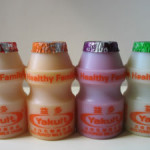Shield Your Skin: The Vital Importance of SPF Heading into Summer
As the days grow longer and the sun shines brighter, there’s an undeniable allure to spending more time outdoors. Whether you’re hitting the beach, going for a hike, or simply enjoying a leisurely stroll in the park, the arrival of summer beckons us to embrace the warmth and sunshine. However, amidst the excitement of outdoor adventures, it’s crucial not to overlook the importance of sun protection. With the sun’s rays becoming more intense, safeguarding your skin with SPF (Sun Protection Factor) should be a non-negotiable part of your daily routine.
Understanding the Sun’s Impact
Before delving into the significance of SPF, it’s essential to comprehend the potential harm that the sun can inflict on your skin. While sunlight is vital for the synthesis of vitamin D and overall well-being, excessive exposure to ultraviolet (UV) radiation poses significant risks. UV radiation consists of UVA and UVB rays, both of which can penetrate the skin and cause damage at the cellular level.
UVA rays penetrate deeply into the skin, leading to premature aging, wrinkles, and the development of skin cancers such as melanoma. On the other hand, UVB rays primarily affect the outer layers of the skin, causing sunburn and contributing to the formation of basal and squamous cell carcinomas. Moreover, prolonged exposure to UV radiation can weaken the skin’s immune system, making it more susceptible to infections and other environmental aggressors.
The Role of SPF
This is where SPF enters the picture as your skin’s ultimate shield against harmful UV rays. SPF measures a sunscreen’s ability to protect your skin from UVB rays, the primary cause of sunburn. Contrary to popular belief, SPF does not indicate the duration of sun exposure; rather, it represents the level of protection against UVB rays. For instance, SPF 30 blocks approximately 97% of UVB rays, while SPF 50 blocks about 98%, providing slightly higher protection.
However, it’s essential to note that SPF only addresses UVB protection, leaving your skin vulnerable to UVA rays. To ensure comprehensive protection, opt for broad-spectrum sunscreens that guard against both UVA and UVB radiation. Look for ingredients like avobenzone, zinc oxide, or titanium dioxide, which offer broad-spectrum coverage without harmful side effects.
Benefits Beyond Sunburn Prevention
While avoiding painful sunburns is reason enough to lather on sunscreen, the benefits of SPF extend far beyond sunburn prevention. Consistent use of SPF can significantly reduce your risk of developing skin cancer, including melanoma, the deadliest form of skin cancer. By shielding your skin from harmful UV radiation, SPF helps mitigate the cumulative damage that can lead to skin cancer over time.
Moreover, incorporating SPF into your skincare regimen can combat premature aging and preserve your skin’s youthful appearance. UV radiation accelerates the breakdown of collagen and elastin, proteins responsible for maintaining skin elasticity and firmness. By preventing UV-induced collagen degradation, SPF helps stave off wrinkles, fine lines, and age spots, keeping your skin looking radiant and youthful.
Embracing Sun-Safe Habits
As temperatures rise and outdoor activities beckon, prioritizing sun safety should be second nature. Incorporate the following sun-safe habits into your daily routine to safeguard your skin against UV damage:
- Apply SPF Daily: Make sunscreen application a daily ritual, regardless of the weather or your plans for the day. Choose a broad-spectrum sunscreen with an SPF of 30 or higher, and reapply every two hours, especially if you’re sweating or swimming.
- Seek Shade: When spending time outdoors, seek shade whenever possible, especially during peak sun hours between 10 a.m. and 4 p.m. Limiting direct sun exposure reduces your risk of sunburn and long-term skin damage.
- Wear Protective Clothing: Opt for lightweight, long-sleeved clothing, wide-brimmed hats, and sunglasses with UV protection to shield your skin and eyes from the sun’s rays. Don’t forget to protect often overlooked areas like your scalp, ears, and lips.
- Avoid Tanning Beds: Steer clear of tanning beds and sunlamps, which emit intense UV radiation and increase your risk of skin cancer. Embrace your natural skin tone and opt for sunless tanning alternatives if you desire a bronzed glow.
Conclusion
As summer approaches and outdoor adventures beckon, remember that sun protection isn’t just a seasonal afterthought—it’s a year-round essential. By incorporating SPF into your daily routine and embracing sun-safe habits, you can enjoy the beauty of the outdoors while safeguarding your skin against sunburn, premature aging, and skin cancer. So, before you bask in the sun’s warmth, don’t forget to shield your skin with SPF—it’s your best defense against the sun’s harmful rays.







